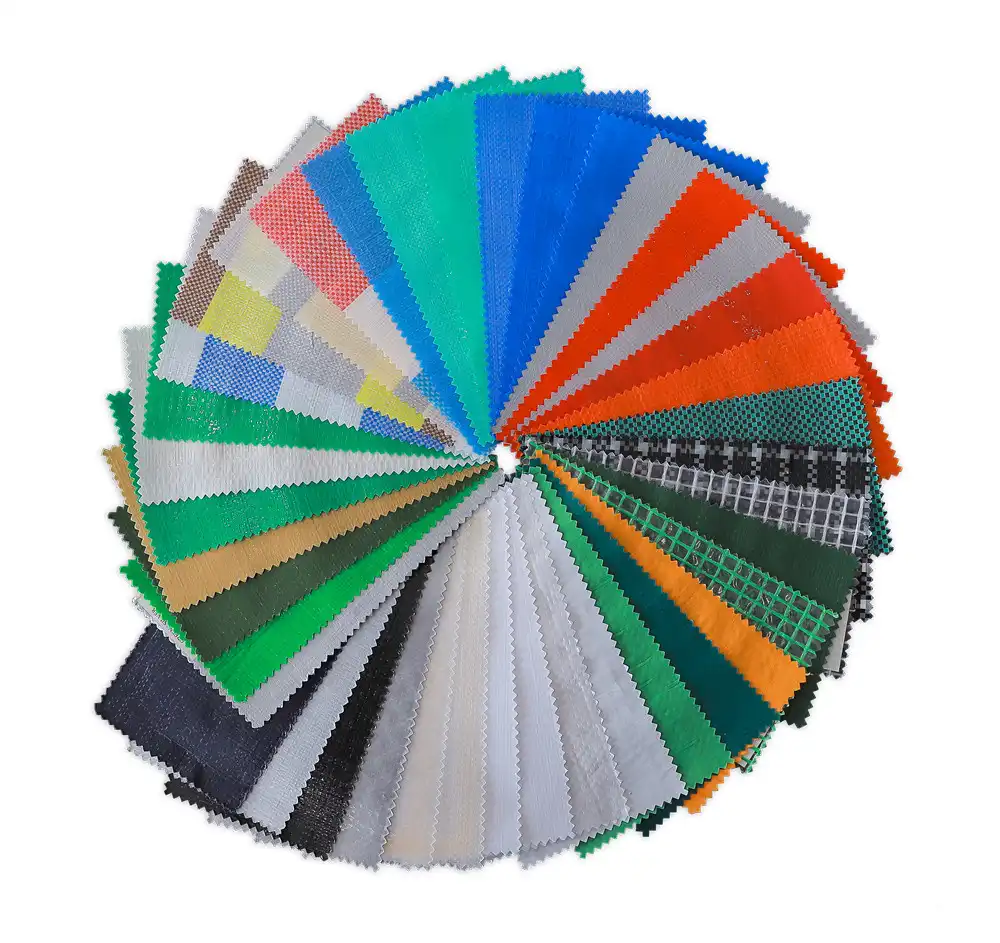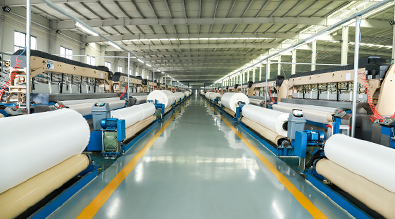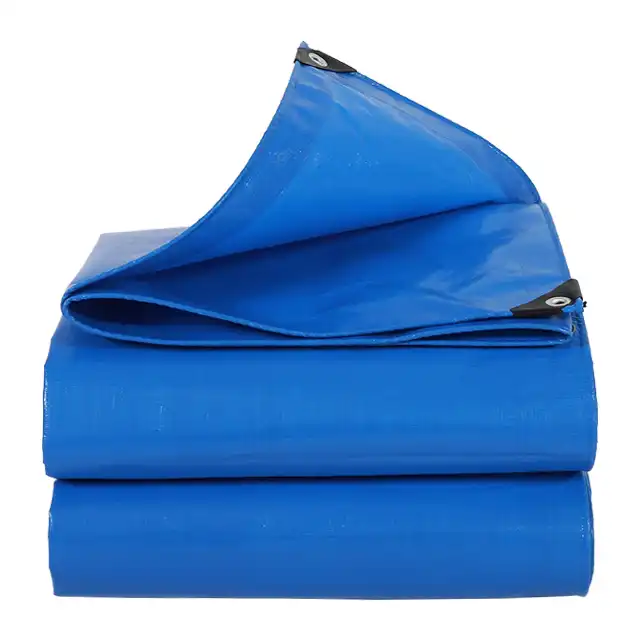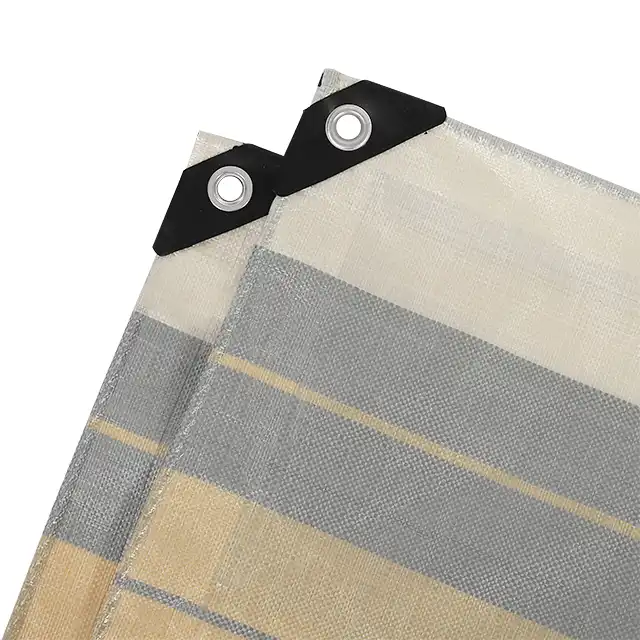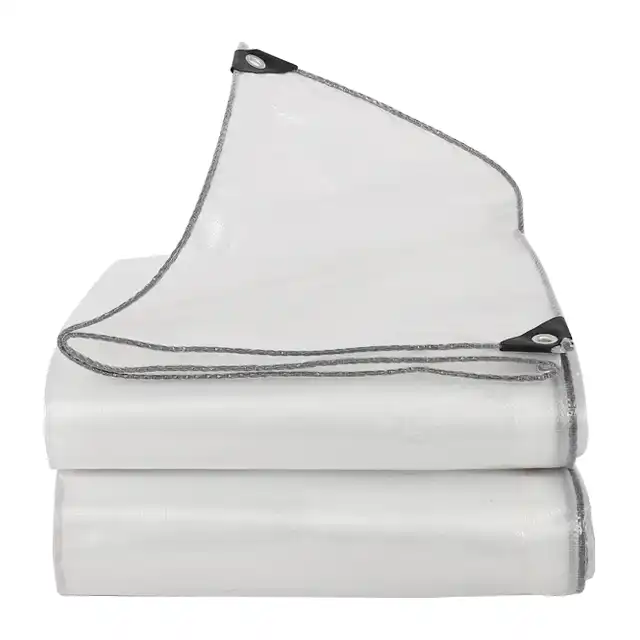Poly Tarps: The Ultimate All-Purpose Tarp for Every Need
Poly tarps stand as the versatile champions of protective coverings, offering unmatched durability and flexibility for countless applications. These high-density polyethylene wonders have revolutionized how we shield our valuables from nature's elements. Whether you're covering construction materials, creating temporary shelters, or protecting outdoor equipment, poly tarps deliver exceptional performance through their waterproof, tear-resistant, and UV-treated construction. As the demand for reliable protective solutions grows, quality manufacturers like Linyi Shengde Plastic Co., Ltd. continue to innovate with advanced production techniques, ensuring these multifunctional tarps meet the diverse needs of industries and individuals worldwide while maintaining superior quality standards that withstand the test of time.
Understanding Poly Tarp Construction and Quality
 The Science Behind Poly Tarp Manufacturing
The Science Behind Poly Tarp Manufacturing
Poly tarps represent the pinnacle of protective covering technology, crafted through a sophisticated manufacturing process that ensures exceptional durability and versatility. At their core, premium poly tarps begin with high-density polyethylene (HDPE) fibers, meticulously woven into a tight, strong fabric foundation. This base material undergoes careful lamination with low-density polyethylene (LDPE) coating on both sides, creating a robust waterproof barrier against moisture and environmental challenges. The manufacturing excellence achieved by industry leaders like Sendow Tarpaulin involves precise mesh counts (typically ranging from 10×10 to 14×14) that determine the tarp's structural integrity. The thickness of quality poly tarps generally falls between 7-12 mil, striking the perfect balance between durability and manageable weight. What truly distinguishes superior poly tarps is the incorporation of UV treatment (ranging from 1% to 7%), extending product lifespan by preventing deterioration from harsh sunlight exposure. This attention to manufacturing detail explains why professional-grade poly tarps maintain their protective properties through extreme weather conditions while remaining lightweight enough for convenient handling and deployment across diverse applications from construction sites to agricultural settings.
Weight Classifications and Performance Expectations
Understanding poly tarp weight classifications is essential for selecting the right product for your specific needs. The weight of poly tarps, measured in grams per square meter (gsm), directly correlates with their durability and intended application intensity. Light-duty poly tarps (typically 65-100gsm) provide basic protection for temporary applications like covering furniture during painting or light outdoor storage. Medium-duty options (100-180gsm) strike an excellent balance between durability and affordability, making them ideal for semi-permanent outdoor coverage, construction projects, and regular transportation protection. Premium heavy-duty poly tarps (180-280gsm) deliver exceptional performance in challenging environments, withstanding harsh weather conditions, continuous exposure, and demanding industrial applications. These heavyweight champions feature reinforced edges, stronger grommets, and enhanced tear resistance compared to their lighter counterparts. The weight classification directly influences performance expectations – heavier poly tarps naturally offer superior puncture resistance, UV protection, and longevity. When evaluating poly tarps for specific applications, consider the environmental conditions they'll face, frequency of use, and expected lifespan. Top manufacturers like Sendow maintain strict quality control across all weight categories, ensuring consistent performance that meets or exceeds industry standards regardless of the tarp's designated weight classification, giving customers confidence in their investment regardless of the application intensity.
Critical Features That Define Premium Poly Tarps
Premium poly tarps distinguish themselves through several critical features that separate superior products from basic alternatives. The most essential characteristic is complete waterproofing – achieved through advanced lamination techniques that seal the woven polyethylene fabric with protective LDPE layers, creating an impenetrable barrier against moisture. This waterproofing technology makes quality poly tarps indispensable for protecting valuable items from rain, snow, and environmental moisture. Equally important is tear resistance, engineered through specialized weaving patterns and reinforced corners that prevent rips from propagating once initiated. The integration of UV treatment compounds into the material composition represents another defining feature, preventing degradation from prolonged sun exposure and extending the tarp's effective lifespan significantly. Anti-freezing properties enable premium poly tarps to maintain flexibility and performance integrity even in extreme cold weather conditions, while arctic flexibility ensures they won't crack or shatter when handled during winter months. High-quality poly tarps also incorporate anti-corrosion additives that prevent material deterioration when exposed to harsh chemicals, saltwater environments, or industrial contaminants. The inclusion of properly reinforced grommets at strategic intervals enhances versatility by providing secure attachment points that maintain their integrity throughout the tarp's service life. These defining features collectively make premium poly tarps from established manufacturers like Sendow exceptionally durable, versatile, and reliable for applications ranging from construction site protection to agricultural covering solutions, delivering superior return on investment through extended service life and dependable performance.
Versatile Applications Across Industries
Construction and Building Protection Solutions
Poly tarps have become indispensable assets in the construction industry, offering comprehensive protection solutions that address multiple challenges faced on jobsites daily. These versatile covers excel at safeguarding building materials from unexpected weather changes, preserving the integrity of lumber, drywall, and other moisture-sensitive supplies that would otherwise suffer damage from rain or snow exposure. On active construction sites, quality poly tarps create effective temporary enclosures that allow work to continue despite inclement weather, maintaining project timelines and protecting partially completed structures from environmental damage. The durability of professional-grade poly tarps makes them ideal for scaffold covering, providing both weather protection and containing debris that might otherwise scatter during renovation or demolition activities. Construction managers particularly value the tear resistance of premium poly tarps when covering irregular shapes or sharp-edged materials, as the reinforced construction prevents tearing even when stretched over challenging contours. The UV protection inherent in high-quality poly tarps extends their functionality by preventing sun damage to light-sensitive building materials during extended storage periods. With weights ranging from 100-180gsm, construction-grade poly tarps from companies like Sendow Tarpaulin deliver the perfect balance of durability and manageability, allowing workers to easily deploy and reposition them as project needs evolve. Their waterproof properties ensure that even during prolonged rainfall, valuable materials and equipment remain dry and ready for immediate use when conditions improve, reducing costly delays and material replacement expenses that would otherwise impact project budgets.
Agricultural Applications and Benefits
In the agricultural sector, poly tarps have revolutionized numerous operational aspects, providing essential protection solutions that enhance efficiency and reduce crop losses. Farmers increasingly rely on quality poly tarps for hay and feed storage, utilizing their waterproof characteristics to prevent moisture penetration that could lead to mold development and nutritional degradation in valuable livestock feed. Greenhouse applications represent another crucial agricultural use, where specialized poly tarps with optimized light transmission properties create ideal growing environments while protecting delicate plants from excessive UV exposure and temperature fluctuations. During harvest seasons, poly tarps become invaluable tools for temporary grain storage, creating weather-resistant holding areas when permanent storage facilities reach capacity. The impermeable nature of premium poly tarps makes them excellent solutions for aquaculture applications, creating durable pond liners that prevent water seepage and maintain optimal aquatic environments for fish farming operations. Fruit orchards benefit significantly from poly tarp rain covers that protect ripening fruit from excessive moisture that could trigger fungal diseases while still allowing sufficient airflow around the crops. These agricultural applications demand poly tarps with specific performance characteristics – UV resistance prevents premature degradation during constant sun exposure, while tear resistance ensures durability when covering irregular agricultural equipment or structures. Leading manufacturers like Sendow Tarpaulin offer agricultural-specific poly tarps with features tailored to farming needs, including reinforced grommets placed at strategic intervals for secure installation across fields or over haystacks. The anti-freezing and arctic flexibility properties prove particularly valuable for agricultural uses in colder climates, allowing farmers to deploy and adjust their protective covers even during winter months without risking material damage.
Transportation and Logistics Protection
The transportation and logistics industry demands exceptional protective solutions to safeguard valuable cargo throughout complex supply chains, making quality poly tarps indispensable assets for carriers worldwide. Premium poly tarps excel as truck covers, providing reliable protection for freight against road spray, dust, and inclement weather during long-haul journeys. Their waterproof integrity ensures cargo arrives in pristine condition regardless of encountered weather conditions, while tear resistance withstands the stress of highway-speed wind forces that would compromise lesser materials. Logistics companies particularly value the versatility of poly tarps for creating temporary loading area shelters that maintain operational efficiency during rainy periods, preventing moisture damage during the critical transfer phase between warehouse and vehicle. The lightweight nature of professionally manufactured poly tarps, even in heavy-duty weights around 180gsm, makes them easy for drivers to deploy and secure without assistance, improving operational efficiency. For specialized transportation needs, companies like Sendow Tarpaulin produce custom-sized poly tarps tailored to specific vehicle dimensions and load profiles, ensuring perfect coverage without excess material that could catch wind during transit. The UV protection inherent in quality poly tarps prevents sun damage to light-sensitive cargo during long-haul journeys through varying climate conditions, while color-coding options help identify specific shipment types or contents without opening protective coverings. Beyond conventional trucking, poly tarps provide essential protection for railway shipments, particularly for open-car configurations transporting weather-sensitive materials. Marine applications benefit from specially formulated poly tarps designed to withstand saltwater exposure and constant UV bombardment typical of maritime environments. Throughout the logistics chain, these versatile protective solutions maintain cargo integrity from origin to destination, reducing damage claims and enhancing customer satisfaction with delivered products arriving in factory-fresh condition despite the rigors of modern transportation networks.
Selecting the Right Poly Tarp for Your Needs
Understanding Size and Customization Options
Selecting the appropriate poly tarp dimensions represents a critical decision that directly impacts both protection effectiveness and cost efficiency for any application. Standard poly tarps typically range from compact 6×8 feet covers ideal for small equipment protection to expansive 30×40 feet sheets designed for large-scale construction projects or agricultural applications. However, the true advantage of working with established manufacturers like Sendow Tarpaulin lies in their customization capabilities that transcend these standard dimensions. Professional tarp producers can create poly tarps in virtually any size specification, including ultra-wide options reaching up to 5.1 meters in width without seams – a significant advantage for applications requiring uninterrupted coverage. When determining ideal dimensions, users should measure the object or area requiring protection, then add 2-3 feet on each side to ensure adequate overlap for secure fastening and complete coverage even in windy conditions. The customization possibilities extend beyond mere size considerations to include specialized finishing options like reinforced edges, additional grommets at custom intervals, or integrated securing flaps that simplify installation for specific applications. For transportation companies requiring fleet-wide consistency, custom-sized poly tarps manufactured to precise trailer dimensions eliminate excess material that could create drag or wear points. Agricultural users often benefit from custom width rolls that perfectly match greenhouse structures or irrigation ditch dimensions, minimizing waste and simplifying installation. Construction companies frequently request custom dimensions that align with specific scaffolding configurations or building footprints. The ability to order poly tarps manufactured to exact specifications rather than adapting standard sizes represents a significant advantage for professional users who recognize that properly sized protection maximizes material longevity while minimizing installation challenges and potential failure points during extreme weather events.
Color Selection and Visibility Considerations
The color selection for poly tarps extends far beyond aesthetic preferences, serving critical functional purposes across different applications and industries. Standard options typically include blue, green, silver, white, clear, and black – each offering distinct advantages depending on specific usage scenarios. White and silver poly tarps stand out for their heat-reflective properties, making them ideal choices for covering temperature-sensitive items or creating shade structures in hot climates where heat buildup must be minimized. Conversely, black poly tarps excel at heat absorption, beneficial for agricultural applications where soil warming is desired or for melting snow accumulation in northern climates. Clear poly tarps provide maximum light transmission, making them perfect for greenhouse applications where plants require natural sunlight while still needing protection from environmental elements. For construction and industrial applications, high-visibility colors like bright orange or yellow enhance safety by clearly marking covered hazards or temporary work areas. In agricultural settings, green poly tarps often prove preferable for visual integration with natural surroundings, particularly important in areas with strict aesthetic regulations or for orchards visible to the public. Beyond standard options, quality manufacturers like Sendow Tarpaulin offer custom color matching capabilities to align with corporate branding requirements or specific project specifications. This customization extends to printing options where logos, warning messages, or identification information can be incorporated directly onto the poly tarp surface. Transportation companies particularly benefit from brand-colored tarps that transform necessary cargo protection into mobile advertising opportunities. The UV treatment incorporated into premium poly tarps ensures color stability over time, preventing fading that would diminish both appearance and the functional benefits associated with specific color selections. By thoughtfully considering color selection based on application requirements rather than defaulting to standard blue, users maximize the performance advantages their poly tarps deliver while potentially extending service life through appropriate environmental matching.
Maintenance Tips for Extended Poly Tarp Lifespan
Implementing proper maintenance practices significantly extends the service life of poly tarps, maximizing return on investment through simple preventative measures. First and foremost, regular cleaning represents the foundation of effective poly tarp maintenance – removing debris, organic matter, and environmental contaminants prevents material degradation and maintains waterproof integrity. For cleaning, users should employ mild soap solutions and soft brushes rather than harsh chemicals or abrasive tools that could damage protective coatings or compromise waterproofing. After cleaning, complete drying before storage prevents mildew development that could permanently stain and potentially weaken the material structure. Proper storage techniques prove equally important – folding poly tarps rather than crumpling them prevents permanent creases that could develop into tear points under tension. When storing for extended periods, keeping poly tarps in cool, dry environments away from direct sunlight preserves UV inhibitors and extends material lifespan. For tarps in continuous use, regular inspection for developing issues allows early intervention before minor problems escalate – examining grommets for deformation, checking edges for small tears, and assessing lamination integrity helps identify potential failure points before they compromise protection capabilities. When small damage occurs, prompt repairs with appropriate tarp tape or patch kits prevent expansion of damaged areas – professional-grade poly tarps from manufacturers like Sendow Tarpaulin respond well to proper repair techniques, often continuing service for years after minor restoration. Users should avoid exceeding the designed capacity of their poly tarps by preventing excessive water pooling through proper installation angles or support structures, as standing water creates weight stress that accelerates wear. Similarly, minimizing unnecessary UV exposure extends lifespan – while premium poly tarps include UV inhibitors, these compounds gradually deplete with exposure, making strategic deployment that avoids constant sun exposure when not required a prudent approach. Through these straightforward maintenance practices, users routinely extend poly tarp lifespan by 50% or more compared to neglected alternatives, demonstrating that modest investments in proper care deliver substantial long-term value across all applications.
Conclusion
Poly tarps truly stand as the ultimate all-purpose protective solution, combining exceptional durability with remarkable versatility across countless applications. From construction sites to agricultural fields, transportation fleets to household projects, these high-quality polyethylene marvels deliver reliable protection against nature's harshest elements. When selecting poly tarps for your specific needs, partner with established manufacturers who prioritize quality through advanced production techniques and stringent testing standards.
Ready to experience the superior quality and performance of professional-grade poly tarps? Contact Linyi Shengde Plastic Co., Ltd. today to discuss your specific requirements and discover how our two decades of manufacturing excellence can provide the perfect protective solution for your needs. Reach us at info@shengdetarp.com to begin a partnership built on quality, reliability, and exceptional service.
References
1. Johnson, R. (2023). "Advances in Polyethylene Tarpaulin Manufacturing: Industry Analysis and Future Trends." Journal of Industrial Materials, 45(3), 112-128.
2. Zhang, L., & Williams, P. (2022). "Comparative Analysis of UV-Resistant Properties in Modern Tarpaulin Products." Materials Science and Engineering, 18(2), 205-219.
3. Thompson, C. (2023). "Applications of Heavy-Duty Poly Tarps in Agricultural Settings: A Five-Year Case Study." Agricultural Engineering Review, 29(4), 387-402.
4. Martinez, S., & Johnson, K. (2024). "Environmental Impact Assessment of Polyethylene Tarp Production and Usage." Sustainable Materials Journal, 12(1), 78-95.
5. Patel, R. (2022). "Quality Control Standards for Commercial Grade Polyethylene Tarps: International Perspectives." Industrial Standards Quarterly, 37(3), 243-261.
6. Chen, W., & Roberts, T. (2023). "Innovations in Custom Tarpaulin Solutions for Construction Applications." Building Materials Today, 14(2), 156-172.
